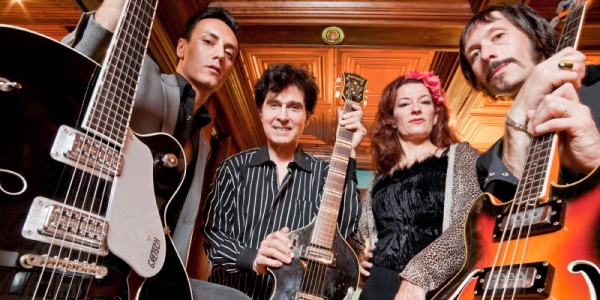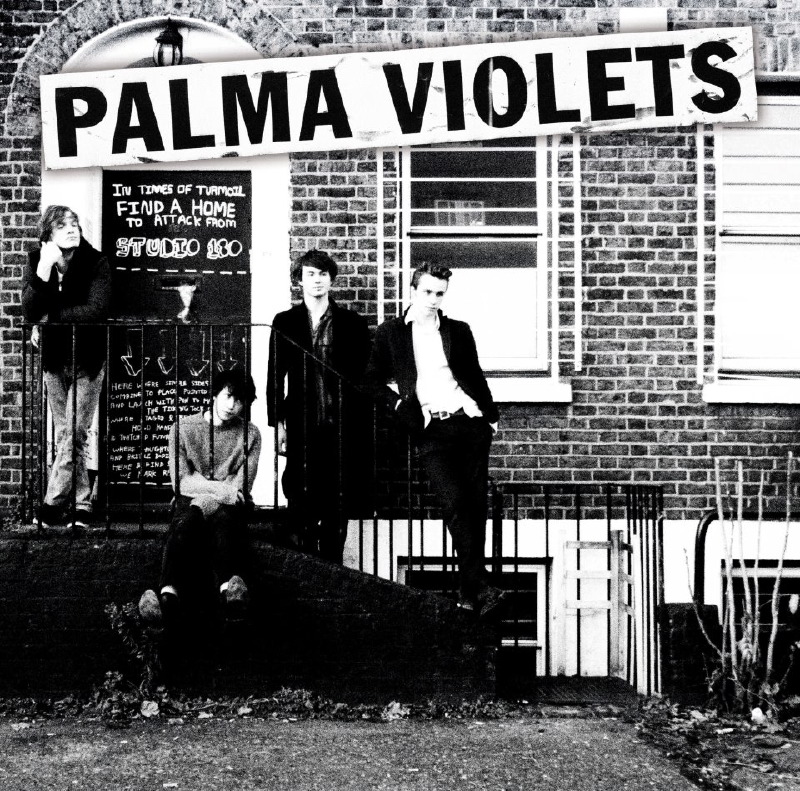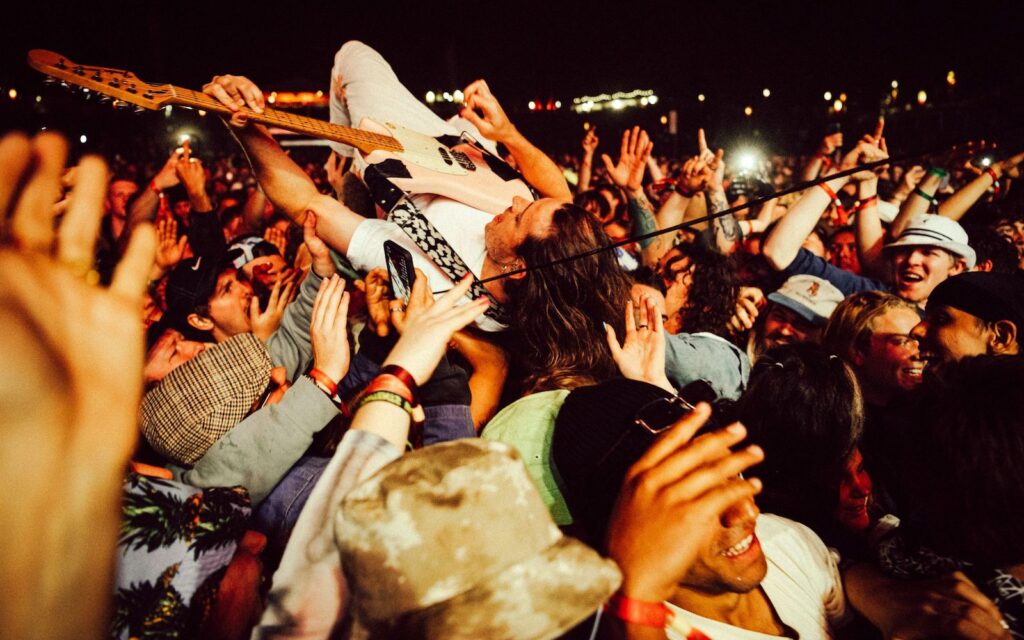Born Gustav Falco in Arkansas, Falco moved to Memphis in 1973. “If you wanted to go to the big city, you went to Dallas or Memphis,” Falco says. “But Dallas is a terrible place, so I made the transition to Memphis because of the music and arts scene – there were film makers, photographers, musicians and visual artists.” Shortly after moving to Memphis, Falco bought himself some film equipment and teamed up with to start documenting the local music scene, with a particular emphasis on those musical styles Falco believed warranted broader public attention.
It was this amateur cinematic project that provided the genesis for Falco’s career in music. “Pretty soon there was no separation between what was going on behind the camera, and what was happening in front of the camera,” Falco says. At a show in 1978 to celebrate the final performance of local legend Jim Dickinson’s Mud Boy group, Falco engaged in the theatrical event that would lead to the creation of Tav Falco’s Panther Burns.
“My idea of Panther Burns came of out my performance work,” Falco says. “I was encouraged to start a group after my performance destroying a guitar on stage at the last ever Mud Boy show in the late ‘70s. I performed Bourgeoisie Blues, and destroyed my guitar with a chainsaw. It was quite a cacophony, and it was also a gesture. It was rather an hysterical performance,” Falco laughs.
Not long after, Falco was hosting a party at his house, and playing some rudimentary guitar “like RL Burnside”. Former Big Star guitarist and songwriter Alex Chilton had rung the house in search of Falco; hearing Falco’s guitar playing, Chilton quickly came over and, after a night of sharing musical and philosophical ideas, began encouraging Falco to start a band. Chilton would become a founding member of The Unapproachable Panther Burns, and go onto produce a number of the band’s early records.
The name of Falco’s band derived from a local southern legend of a wild cat. “I had heard this name, Panther Burn, around Memphis,” Falco says. Dropping into a dramatic, hushed storyteller’s voice, Falco explains the story of a panther that prowled a plantation in Mississippi, just off Highway 61. When the land was being cleared, the panther eluded all attempts to capture it. One night the cat was corralled into a cane break, and set on fire. The resulting demonic screams laid the foundation for a curse that is said to continue to the present day.
For Falco, the story of Panther Burn was more than colourful local legend. “There was the Rolling Stones and Muddy Waters, and now there is Panther Burns,” Falco says. “There was a critter that had somehow outlived the frontier – this panther was the symbol of the type of music that is untamed and uncontrolled. Panther Burns became the ditch diggers of American music.”
After Chilton left the band, the Unapproachable Panther Burns became Tav Falco’s Panther Burns, utilising the services of a rotating lineup musicians through the ‘80s and ‘90s (the present lineup of Falco, Grégoire Garrigues, Giovanna Pizzorno and Laurent Lanouzière has remained stable since the 90s). Falco’s eclectic and stylish indulgence of different genres has remained at the core of Panther Burns.
“It’s the job of the artist to break down barriers between the arts,” Burns says. “In the ‘60s you had a lot of concepts that were thrown out, and then started again. People threw out terms like creativity, and they picked up their instruments and just started playing them. In Panther Burns the idea was that genres were not sacred. But that doesn’t mean that we’re not reverential. And we’re not just a revivalist outfit. The idea is to deconstruct a genre or song or idea, and then reconstruct it, and re-interpret it.”
Over 15 years ago Falco moved to Vienna, a move he says preserved his artistic edge. “Without a doubt this transition that I’ve made isn’t for everyone,” Falco says. “I could’ve stayed in Memphis as a rocker – but Panther Burns is more than a rocker, it’s much more complex than that.” While Falco isn’t a political agitator, his role in elevating oft-neglected genres – many of which have strong political undertones – has a political context. “An artist can’t be totally apolitical,” Falco says. “There comes a time when you have to speak out. I’m not a crusader, but when I’m asked, if I have to speak out, then I will.”
BY PATRICK EMERY







